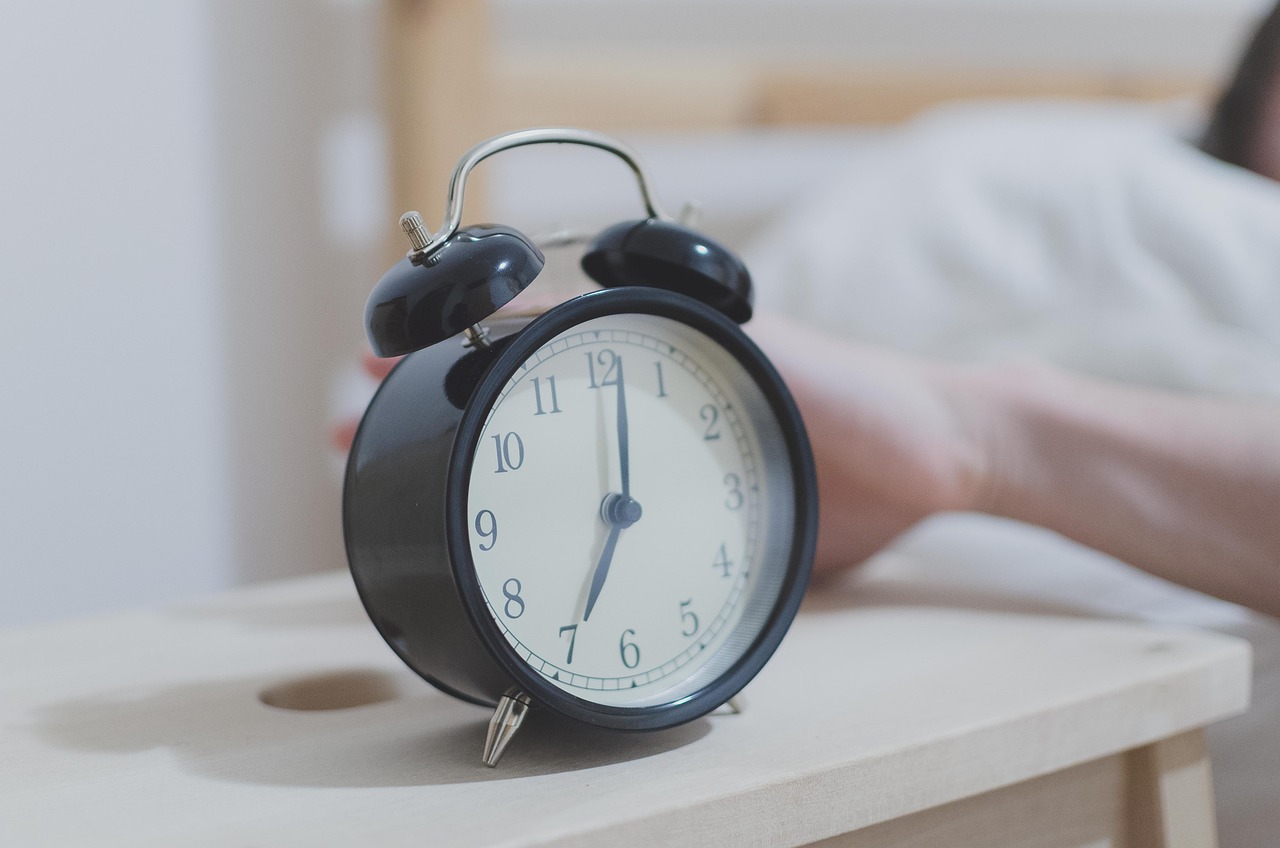Is this you when you wake up every morning? Seven or eight alarm clocks won’t wake you up, and the purpose of the alarm clock has become to continue sleeping in a different position.

And (again) a preview of being late for work.
How exactly do you wake up when your alarm goes off?
Waking up when the alarm goes off is really anti-human.
If you’re like me and you can’t wake up every morning when your alarm goes off, don’t worry because it’s pretty much our nature.
A 2017 survey found that bedwetting is much more common than we think, with nearly 70% of 20-29 year olds failing to get out of bed when their alarm goes off, and a recent article published in the Journal of Sleep Research reported that 69% of respondents use the “sleep again” feature or set more than one alarms.
But why do we always fail to get up?
Researchers interviewed participants and found that the most common reason was “unable to wake up/too tired”. After all, going to work every day is already exhausting, and at night we may have to work overtime or stay up late, our bodies and brains are already overloaded, so just a few hours is not enough to get a good night’s sleep.
Secondly, it’s the feeling of lying under the covers that makes us feel so good. In addition, there are also “worry about not waking up”, “need to sleep longer”, “no motivation to get up”, “lack of sleep” and so on. “are also common reasons why people want to stay in bed.
So it’s not really your fault if you can’t get up, it’s only natural to stay in bed in the morning.
It’s only natural to stay in bed in the morning, but it’s even better to take a nap after the alarm goes off.
Not only that, the latest scientific research has even found that after the alarm clock rings, stay in bed for a while, and then take a nap, may be better for our body!
The research team from Stockholm University in Sweden recruited a group of participants and divided them into two groups, one group for the “nap group”, they need to get up 30 minutes before setting the first alarm, and then every 9 to 10 minutes the alarm went off; the other group for the “direct get up group The other group was the “direct wake-up group,” in which participants woke up immediately after the alarm went off.
Surprisingly, the researchers found that taking a 30-minute nap after the alarm significantly improved cognitive performance, including speed of counting, contextual memory, and cognitive control.
After all, I spend most of my energy getting out of bed every day, so what do I care about memory or self-control? I’m lucky if I can make it to punch in on time!
Additionally, taking a nap can increase early morning cortisol levels, allowing you to wake up more alert and in a happier mood. With a good mood, optimistic attitude, agile cognitive thinking, and plenty of energy, I can’t even begin to imagine how much my work efficiency can be boosted.
In this regard, researchers explain that this is because there is a transition period from sleep to wakefulness, which is known as sleep inertia. During this time, people experience temporary disorientation, slowed reaction time, poor concentration and memory loss, which gradually dissipates as they spend more time awake.
Research from neuroscience has also found that there are significant differences in our neural activity between sleep and wakefulness, so there may be a delay when state switches are made.
From an evolutionary perspective, a certain amount of sleep inertia allows us to fall asleep quickly when we occasionally wake up, helping us to better conserve energy, while a 30-minute bedtime nap may help to alleviate sleep inertia and improve cognitive functioning upon awakening.
That said, our bodies need a little cushion too. Taking a nap when the alarm goes off not only improves cognitive function and regulates cortisol levels, but also keeps you in better shape and mood.
It’s no wonder that our ancestors left behind a valuable old adage: Sharpen the knife and wake up to work!
How to Wake Up Painlessly
So, what can we do to minimize the pain during the process of waking up?
According to the experiment, we can set 3 to 4 alarm clocks to wake ourselves up gently.
The first alarm, as gentle as possible, can be the iPhone’s sleep alarm clock, with a gradual volume and a fresh melody; it can be a smartwatch, with a vibration on the wrist to wake up; it can also be the curtains automatically open or prepare a natural wake-up light to simulate the sunrise light.
Don’t use your iPhone’s ringtone radar – the shrill tones can wake you up with the suspicion that you’re about to be shocked into a long sleep.
Then, set a gentle alarm every 9-10 minutes, and let yourself take three more light naps before finally waking up, to minimize the discomfort of being woken up and make it easier for you to stay awake.
Of course, this bed is always going to be up, and you can’t nap indefinitely, so remember to change your last alarm to an equally gentle ringtone to tell yourself that it’s really time to get up.
If you’re worried that the last alarm won’t wake you up, you can give yourself a little intensity at the end, for example, an alarm carpet, 15 kilograms or more, and stand for 10 seconds before the alarm stops; or try a fancy wake-up app, where you have to take a picture at a fixed point or do arithmetic to turn off the alarm.



